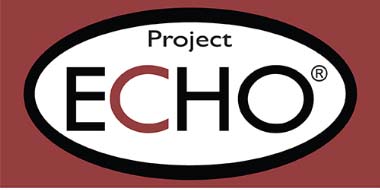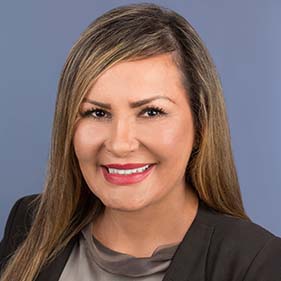Children from Spanish-speaking families often face barriers to autism care, including late diagnosis. That’s why her MIND Institute at the University of California, Davis, is now opening a virtual Spanish Autism Education program to families inside and outside the community.
An interactive program called ECHO Autism has been offered to autism providers in the past. It now connects MIND Institute professionals with families, caregivers and healthcare providers. Spanish sessions are held on the second Thursday of each month from 9-11am PST.
Bibiana Restrepo, developmental and behavioral pediatrician at the MIND Institute, member of the ECHO team, said: “Children from Spanish-speaking families are more likely to receive a formal autism diagnosis later in life and have more problems. “It does occur, but has a lower prevalence among Hispanic children in many parts of the country. This presents a barrier to diagnosis,” Restrepo explained.
How does echo autism work?
The MIND Institute’s ECHO Autism team includes developmental behavior pediatricians, psychologists, social workers, community resource specialists, and behavioral specialists. The format is a virtual interactive conference. Participants log in via the conference call platform.
Experts first present topics relevant to autistic providers, caregivers, and families of individuals with autism. Healthcare providers then present patient cases to receive recommendations, advice, and support (patients are not identified to protect privacy).
A multidisciplinary approach gives participants access to a wide range of expertise. The core concept is to provide help and support in using practices and treatments backed by research and evidence.
“ECHO Autism is centered around the learner,” Restrepo said. “We are working together to come up with ideas that have a common goal of improving care for people with autism. Other commonly occurring medical and mental health conditions are also often discussed.
ECHO Autism is learner-centered. We are working together to come up with ideas that have a common goal of improving care for individuals with autism. We often discuss other medical and mental health conditions that commonly occur with autism. —Bibiana Restrepo, Developmental Behavioral Pediatrician
Meet more autism support needs
ECHO Autism is available in English for contributors from 2018 onwards and Spanish for contributors from 2021 onwards. The goal is to build stronger links with providers in rural and underserved areas to improve autism care. The expertise gained by health care providers is widely ‘reverberated’ in caring for patients. However, Restrepo said he heard from members of the Spanish-speaking community that there was also a strong demand for increased home education.

“Our team met with several parenting groups in our community and found this information and support sorely needed. was enthusiastic about being available to families,” Restrepo said.
This program is aimed at people in Northern California, but is not limited to this region. It contained quite a bit.
“ECHO was a great opportunity to meet with community-building professionals who care for people living in rural and underserved areas and who share the same goal of improving autism care everywhere,” Restrepo said. I got
How to sign up for ECHO Autism
ECHO Autism is a free program. Funded by the Division of Developmental and Behavioral Pediatrics at UC Davis Health.
Sessions are on the second Thursday of each month from 9:00-11:00 AM PST. Registration required. To register or learn more, email hs-echoautism@ucdavis.edu.
The UC Davis MIND Institute, Sacramento, California, was established in 1998 to bring together families, community leaders, researchers, clinicians, and volunteers to study the causes, treatments, and potential prevention of problems associated with neurodevelopmental disorders. It was established as a unique interdisciplinary research center working together towards a common goal: hindrance. The Institute conducts major research activities in autism, Fragile X Syndrome, Chromosome 22q11.2 Deletion Syndrome, Attention Deficit Hyperactivity Disorder (ADHD), and Down Syndrome. More information about the Institute and its Distinguished Lecturer Series, including previous presentations in this series, is available on the web at miniinstitute.ucdavis.edu.

